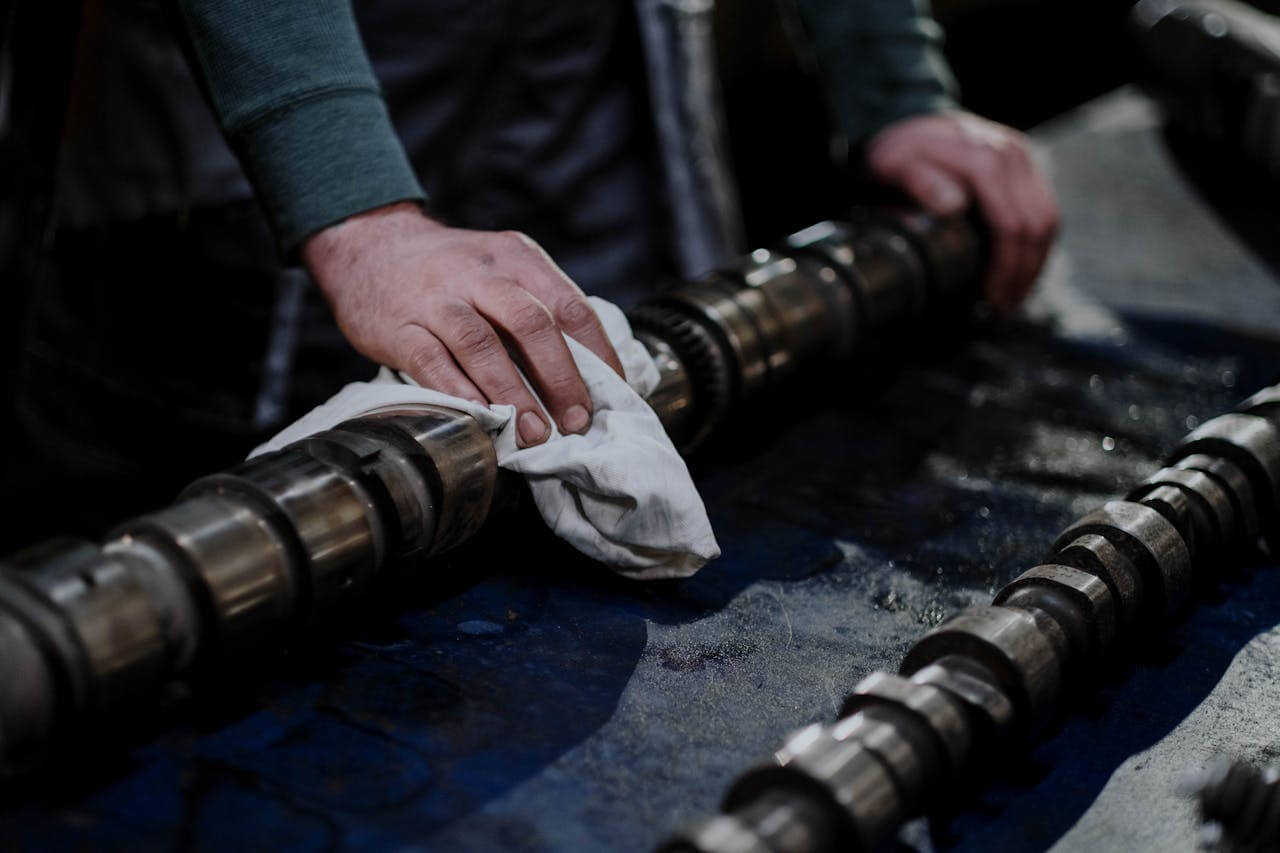
When people think about the rising cost of car repairs, they usually imagine labour rates, insurance claims, or the price of specialist paint. What is less obvious is the impact that international politics can have on something as everyday as fixing a dented wing or replacing a cracked bumper.
Global tariff wars, where countries impose extra charges on imported goods, can ripple through supply chains and increase repair bills at the average UK garage. This is particularly true in a sector that depends heavily on parts manufactured overseas.
Understanding how tariffs work, and why they matter, is important not only for policymakers and businesses but also for motorists who may wonder why their repair bills are higher than expected.
The automotive industry is one of the most globalised in the world, with car parts and materials often crossing multiple borders before reaching a workshop in West Sussex or anywhere else in the UK.
This interconnectedness means that trade disputes thousands of miles away can have a direct effect on what you pay when your vehicle needs attention.
Tariff wars typically arise when one country decides to protect its domestic industries by imposing extra charges on imports.
For example, a government might apply a 25% tariff on steel or aluminium coming from abroad in an attempt to give local manufacturers an advantage. Other countries often retaliate, creating a cycle of escalating charges. While the headlines usually focus on big industries such as manufacturing or agriculture, the effects spread far wider.
For the automotive repair sector, tariffs on raw materials such as steel, aluminium, or plastics are particularly significant. Modern vehicles are made up of complex assemblies sourced from all over the world, with different components manufactured where production is most efficient.
A bumper cover might come from Spain, headlights from Germany, and a replacement bonnet from China. When tariffs are applied to these parts or the raw materials used to make them, the extra costs eventually filter down to garages and their customers.
The Supply Chain Effect
A modern car is an international product by design. Even vehicles produced in the UK rely on a supply chain that stretches across Europe, Asia, and beyond.
This means that tariff disputes between two countries can affect repair costs here, even if the UK is not directly involved. If the price of steel rises because of tariffs imposed by the United States, that cost increase may be felt in global markets, raising the price of body panels and repair materials across the board.
For garages, this translates into higher parts costs. When suppliers pay more to bring components into the country, they pass those costs on to repair shops.
Garages cannot absorb all these increases, so they inevitably find their way into the final bill for customers. Even something as seemingly simple as paint can be affected, as many automotive paints rely on imported chemicals or pigments.
For the average motorist, the effects of tariff wars can be subtle at first. A bumper replacement might cost £50 more than it did a year ago, or a windscreen repair may seem inexplicably higher than expected.
Over time, however, the cumulative effect becomes clear. Garages that once sourced affordable parts from overseas suppliers may find their options limited or more expensive. In some cases, delays in global supply chains caused by tariff disputes can also extend repair times, leaving customers waiting longer for their cars to be returned.
Classic car owners may feel the pinch even more acutely. Many parts for older vehicles are already difficult to source, often coming from specialist suppliers abroad.
When tariffs or trade restrictions are added into the mix, the cost of importing these rare parts can rise dramatically. A chrome trim piece for a vintage Jaguar or a rare body panel for an Italian sports car might become not only more expensive but also harder to obtain, adding further challenges to the restoration process.
Another factor linked to tariff wars is currency volatility. When countries impose tariffs on one another, financial markets often respond with uncertainty.
Exchange rates can fluctuate sharply, making imported parts more expensive even without direct tariffs applied to them. For UK garages, this can create additional unpredictability in parts pricing, complicating estimates and making it harder to give customers firm quotes in advance.
If tariff wars persist, the long-term consequences for garages and customers alike can be significant. Repair costs may continue to rise, particularly for imported parts and specialist components.
In some cases, garages may seek to adapt by turning to alternative suppliers, exploring refurbished or remanufactured parts, or investing in more stock to reduce reliance on unpredictable imports. However, these strategies are not always possible, especially for small independent garages that lack the purchasing power of larger chains.
For motorists, this means that budgeting for repairs could become more difficult. Insurance premiums may also rise, as insurers factor in higher repair costs when settling claims. The combined effect could make vehicle ownership more expensive across the board.
Despite the challenges, many garages in the UK find ways to adapt. Building strong relationships with suppliers, diversifying sources for parts, and keeping customers informed about potential delays or cost increases all help to manage the impact of tariff wars. Independent garages often pride themselves on transparency and personal service, explaining the reasons behind price changes rather than hiding them.
Technology also plays a role. Advances in 3D printing and local manufacturing may, in time, reduce reliance on imports for certain parts. For now, however, most garages remain dependent on global supply chains, meaning that tariffs and trade disputes will continue to be felt on the workshop floor.
At White’s Bodyworks in West Sussex, we understand how global forces can shape local realities. While tariff wars and international trade disputes may be beyond anyone’s control, what matters most is how your local garage responds.
We work hard to source quality parts at the best possible prices, maintaining strong relationships with suppliers to minimise delays and cost increases.
Our team specialises in all aspects of bodywork repair, from repairing everyday dents and scratches to full resprays and structural work. We are also experts in classic car restoration, where the challenge of sourcing rare parts is part of the craft.
Whether you drive a modern hatchback or a cherished vintage vehicle, we combine technical skill with a commitment to customer care, ensuring that repairs are carried out to the highest standards.
Global tariff wars may add complexity to the world of automotive repairs, but with White’s Bodyworks you have a trusted partner who understands how to navigate these challenges. Our focus is on delivering excellent workmanship, honest advice, and reliable service, whatever the wider economic climate may bring.
If you need bodywork, contact the team at White’s today for a competitive quote.
